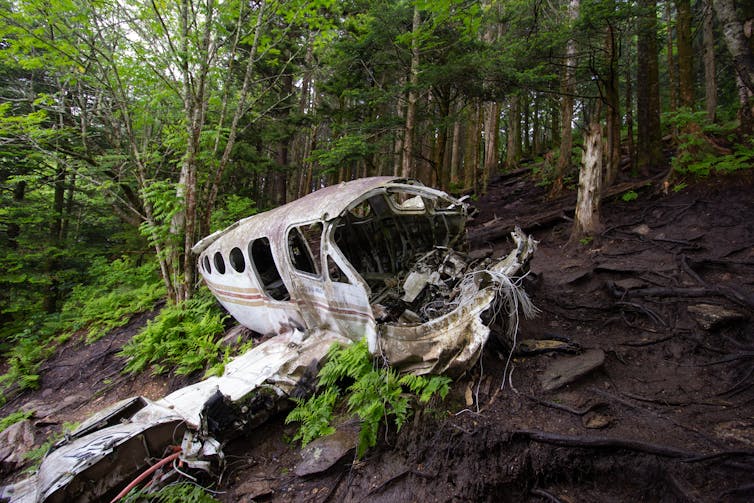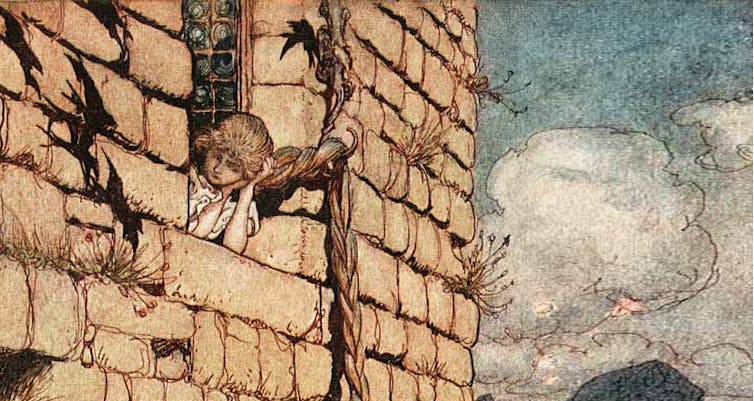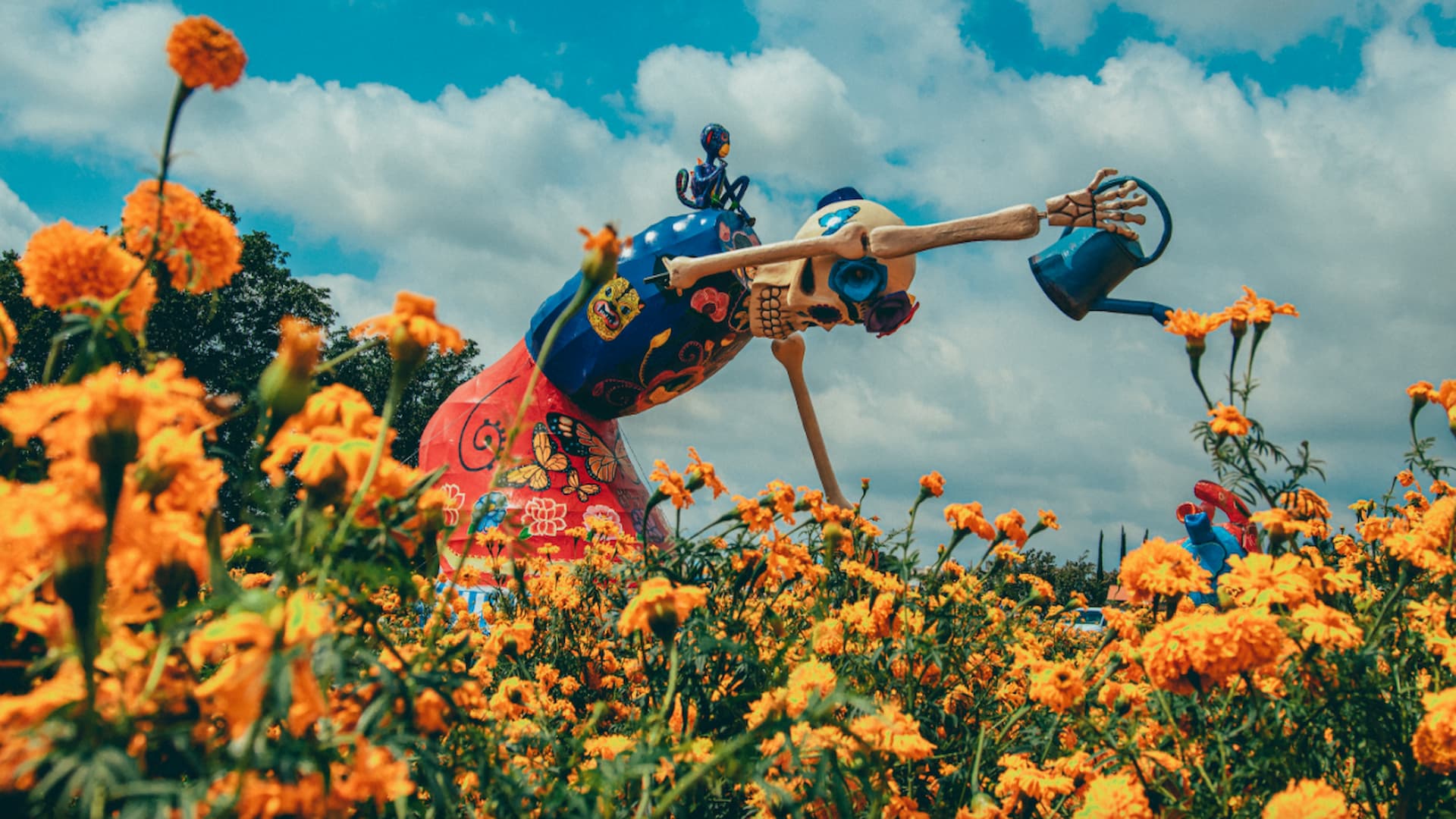December 12, 2022
‘We are only passing through’: stories about memory, mortality and the effort of being alive
Here Be Leviathans and The Tower are two very different short-story collections to consider in tandem
Chris Flynn’s Here Be Leviathans is a collection of short stories that seems quirky and light-hearted, propelled by its creative use of perspective. Each story is established from a surprising vantage point and so the world as Flynn imagines it becomes topsy-turvy – anything at all might be alive and sentient. Animals, chairs, boats, you name it.
Review: Here Be Leviathans – Chris Flynn (UQP) and The Tower – Carol Lefevre (Spinifex)
A bear eats a teenager, and thus inherits the boy’s memories. An airplane seat describes its last day at work. A hotel room observes its favourite couple, who return over the years. A monkey details a trip into outer space. But these stories are driven by more than quirky inspiration.
The point-of-view might offer an interesting hook, and Flynn’s tone may be jaunty at times, but the stories are propelled by deeper themes of mortality, death and existential pointlessness. Flynn uses perspective to reflect and question the way we think about things.
Memory and mortality
Many of the characters in this collection die, have died or are about to die – but there’s also a counter-theme of connection. The bear may eat the teenager, and so the ranger is hunting him down; we enter a hide-and-seek game for survival. But it’s the connection the bear and ranger have, the mutual respect they share, that becomes the message of the first story, Inheritance.
Flynn also explores ideas of memory transference, and this imbues the story with lingering, thoughtful hope: something that pervades the whole collection. In Flynn’s world, death can be a means to existence – as long as our memories keep living, our experiences and perspectives continue to exist.
Flynn’s use of unexpected points of view allows him to avoid the sentimental. In 22F, he tells the story of an airplane seat abandoned in the jungle and we’re left with the superb image of moss growing up and over the upholstery, claiming the seat for the natural domain. We learn about the seat’s history, the work-politics of neighbouring seats, and observations of the passengers who have sat in them. We see glimpses of these human cargoes that simultaneously show the banality and profundity of life.
The collection took Flynn ten years to write, and he includes notes at the end about his process and the stories’ origins. For instance, he describes how 22F was inspired by the Werner Herzog documentary Wings of Hope, which interviewed Juliane Koepcke, the sole survivor of a 1971 airplane crash. Together, Herzog and Koepcke journey to the site of the crash and find parts of the airplane in the jungle. Flynn says the story is about:
Memory and place. A reminder that we are only passing through and that everything is part of something larger.

The importance of memory and place is further explored in the story A Beautiful and Unexpected Turn, where we follow the perspective of a hotel room that takes a special interest in its guests, Diane and Hector. We see the waxing and waning and waxing of their relationship. At the end, the room says:
We are places of passage, of transience […] Eventually, I would be demolished, perhaps to make way for another hotel or an apartment block, or nothing […] I would become rubble, and then dust.
This could be the larger message of the book – our lives are transient and then we become dust. The connections we experience and inspire are what give us meaning in the moment.
Complications of care
Carol Lefevre’s The Tower also emphasises place. This thoughtful collection of short stories is very different from Flynn’s in tone and focus, but it too grounds storytelling in the themes of place and mortality.
The Tower is structured around a series of interlocking narratives about Dorelia MacCraith – in the very first story, after losing her husband Geordie, she sells her house and buys a new one, with a tower. Her children, who she does not consult, are suspicious of this defiant act.
Straight away, the reader is thrust into the negotiations and complications of care. People who Dorelia once cared for are now asserting (or trying to assert) forms of reverse care. And many stories in the collection reverberate with related themes – women caring for children and partners and parents, or making decisions about their positions as carers, especially in the context of trying (or deciding not) to have children.
The interconnected stories about Dorelia and her tower are the centrepiece of the collection. Yet Dorelia finds this house of her own by accident, when driving her dear friend and fellow artist Elizabeth Bunting to an appointment:
they took a wrong turn, and then another, until at the end of the a quiet cul-de-sac, set among sheltering trees, stood the most adorable house […] and above the porch rose a small tower.
I appreciate that it is the women’s friendship – their spark of connection and humour are immediate and inviting – that enables Dorelia to find her tower oasis. I also appreciate that this critical act occurs during a moment of generosity and care: Dorelia is driving Elizabeth to an appointment.
While Dorelia may find her tower by accident, we never feel Lefevre is accidental in rendering the lives of these women on the page. The prose is carefully controlled, as is the detail and world-building – and the deeper reflections of the stories kaleidoscope through one another, building in nuanced ways.
Reimagining the crone
Of course, symbolic permutations resonate throughout this text – a tower of one’s own harks to Virginia Woolf and Rapunzel. Dorelia reimagines the crone from the Rapunzel fairy tale as central and heroic.
This rewriting and revision of the crone – and her motives and backstory – seems key to recognising women’s narratives more generally, and prioritising a multiplicity of stories and experiences within the Australian literary canon. In this sense, it feels like Lefevre is in conversation with authors such as Drusilla Modjeska, Amanda Lohrey and Charlotte Wood.

In tarot mythology, the card of The Tower considers the collapse of old structures. We get a sense of this in the reflexivity of the text, as well as in its story-world – as Dorelia faces life without her husband Geordie. Indeed, old age itself collapses life as she’s known it. The interplay between the textual and the intertextual resonates in this collection, making this book as enjoyable to later ponder as it was to actually read.
Here Be Leviathans and The Tower are two very different short-story collections to consider in tandem. They vary in voice, tone and style. Yet both engage with the precariousness and effort that is at the foundation of being alive, and making meaning from our short time on the planet.![]()
Shady Cosgrove, Associate Professor, Creative Writing, University of Wollongong
This article is republished from The Conversation under a Creative Commons license. Read the original article.
UOW academics exercise academic freedom by providing expert commentary, opinion and analysis on a range of ongoing social issues and current affairs. This expert commentary reflects the views of those individual academics and does not necessarily reflect the views or policy positions of the University of Wollongong.
